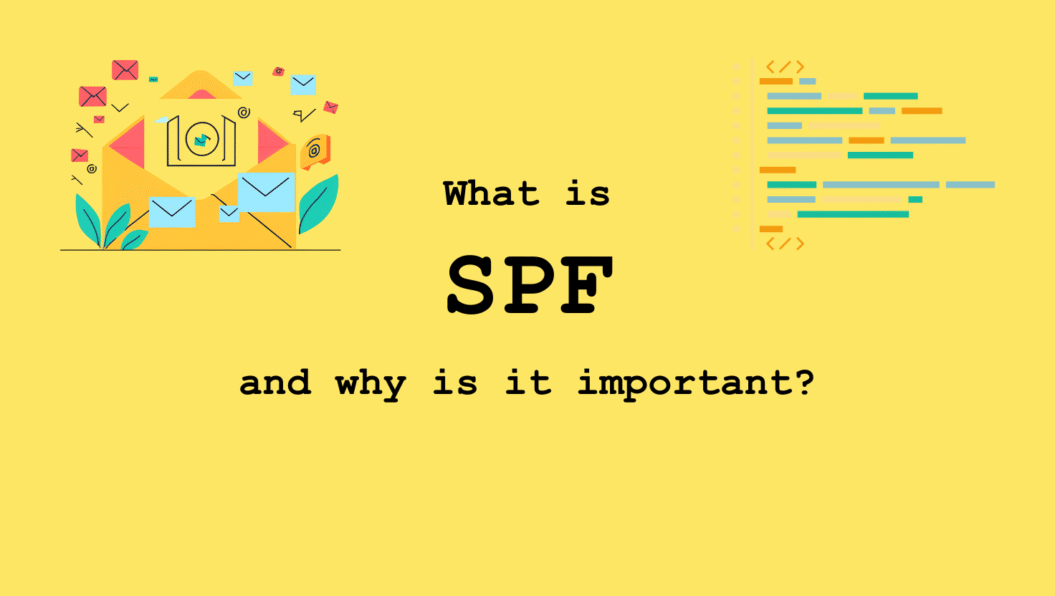If you are sending emails for your business, making sure they actually land in inboxes - and that they are trusted when they get there - is more important than ever.
SPF, DKIM, and DMARC are three behind-the-scenes tools that help protect your emails, your brand, and your deliverability.
In this short series, we will walk through what each one does, why they matter, and how getting them set up properly gives your email marketing a serious edge.
TL;DR
SPF (Sender Policy Framework) is a security measure that tells email providers which servers are allowed to send emails on behalf of your domain. It helps your emails land in inboxes, protects your brand from impersonators, and is now a basic expectation if you want good deliverability. Setting it up is quick, easy, and essential.
Protecting Your Primary Domain: A Practical Guide to Look-Alike Domains
If you are serious about email marketing, then you cannot afford to ignore the technical bits that decide whether your messages land in someone’s inbox or get thrown straight into spam. One of those key technical pieces is called SPF.
It might not sound glamorous, but trust me, it is one of the easiest wins you can give your email marketing.
So, what is SPF?
SPF stands for Sender Policy Framework. It is a simple way for email providers to check that an email claiming to come from your domain is actually allowed to do so.
In plain English, it is like a guest list at a party. If your name is on the list, you are allowed in. If it is not, you are politely shown the door, or in this case, sent to the spam folder or blocked altogether.
SPF works by letting you tell the world which servers are authorised to send emails on behalf of your domain. You do this by adding a special SPF record to your DNS settings. When someone receives an email from you, their mail server checks that record to see whether the email came from a server you have approved. If it did, great. If it did not, warning bells go off.
Why is SPF important for email marketing?
You might be wondering why you should bother setting it up. Here is why:
1. It Helps Get Your Emails Delivered
Email providers are becoming more suspicious by the day. If you do not have an SPF record in place, it is much more likely your carefully crafted marketing emails will be marked as spam or rejected entirely.
If you want people to actually read what you have written, SPF is not optional.
2. It Protects Your Brand
Without SPF, someone else could send emails pretending to be you. Yes, scammers really do this. And when they do, it can cause a lot of damage to your brand’s reputation, not to mention legal headaches if sensitive information is involved.
Setting up SPF is one of the quickest ways to protect yourself from email spoofing.
3. It is Now Expected
Big players like Google and Yahoo are tightening their rules. They expect serious senders to have SPF, DKIM, and DMARC properly set up. If you are missing any of these, you are putting your email deliverability at risk.
In other words, SPF is not just a “best practice” anymore. It is a minimum requirement if you want to stay visible in the inbox.
Is setting up SPF complicated?
Not particularly. Most email platforms will provide you with the exact SPF record you need. It is usually just a matter of copying it into your DNS settings. It can look a bit strange if you are not used to it, but it is a one-time job, and once it is done, it keeps working quietly in the background.
It is a small bit of effort that makes a huge difference.
Final Thoughts
If you are investing in email marketing, SPF is one of the basics you simply must have sorted. It improves your deliverability, protects your reputation, and keeps you on the right side of the rules.
The best marketing campaigns start with actually getting into the inbox. SPF is how you help make that happen.
